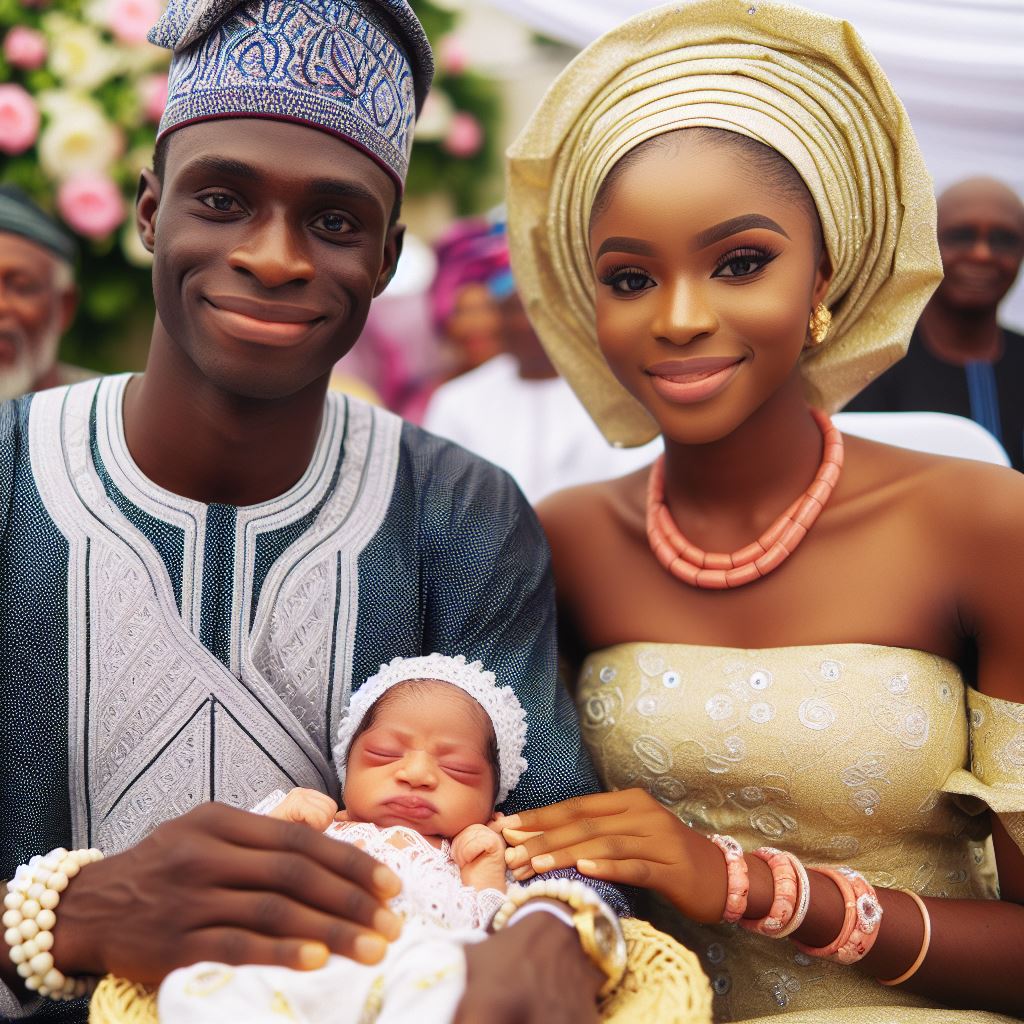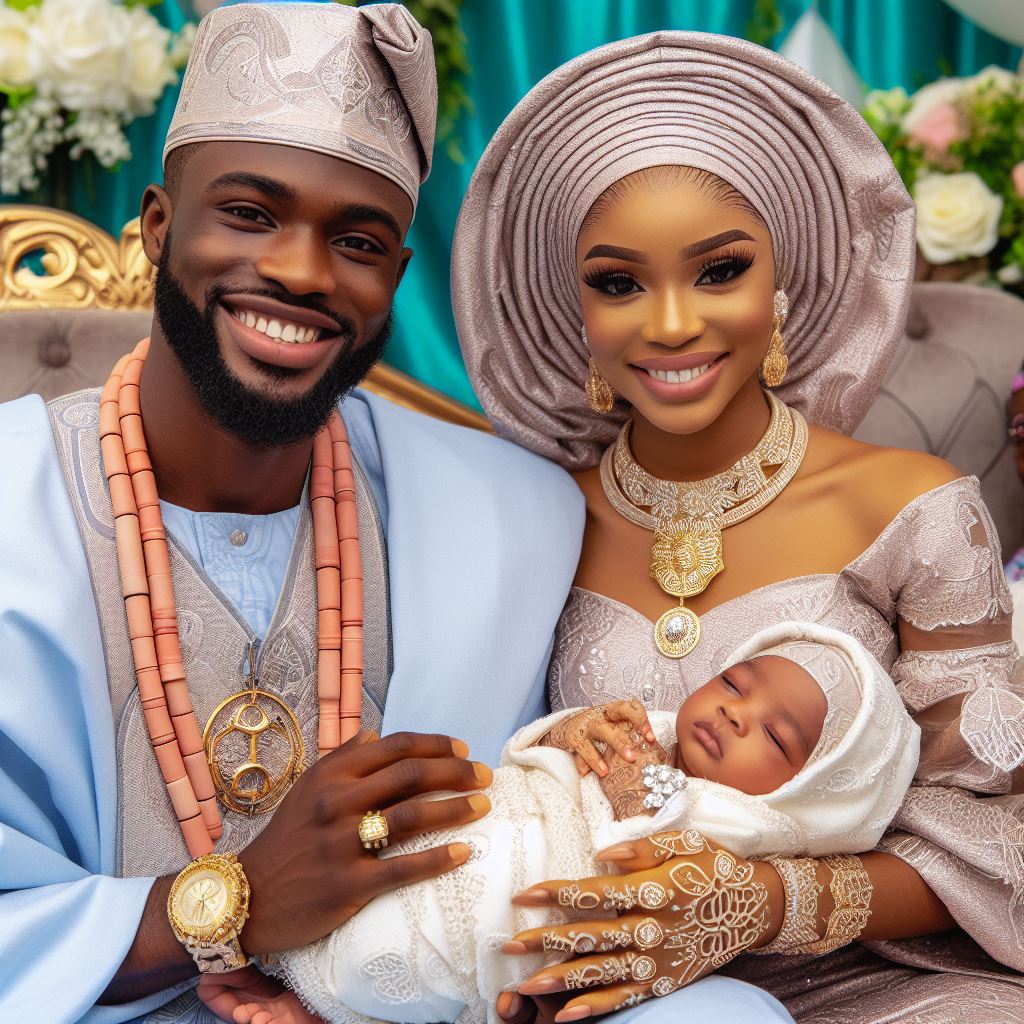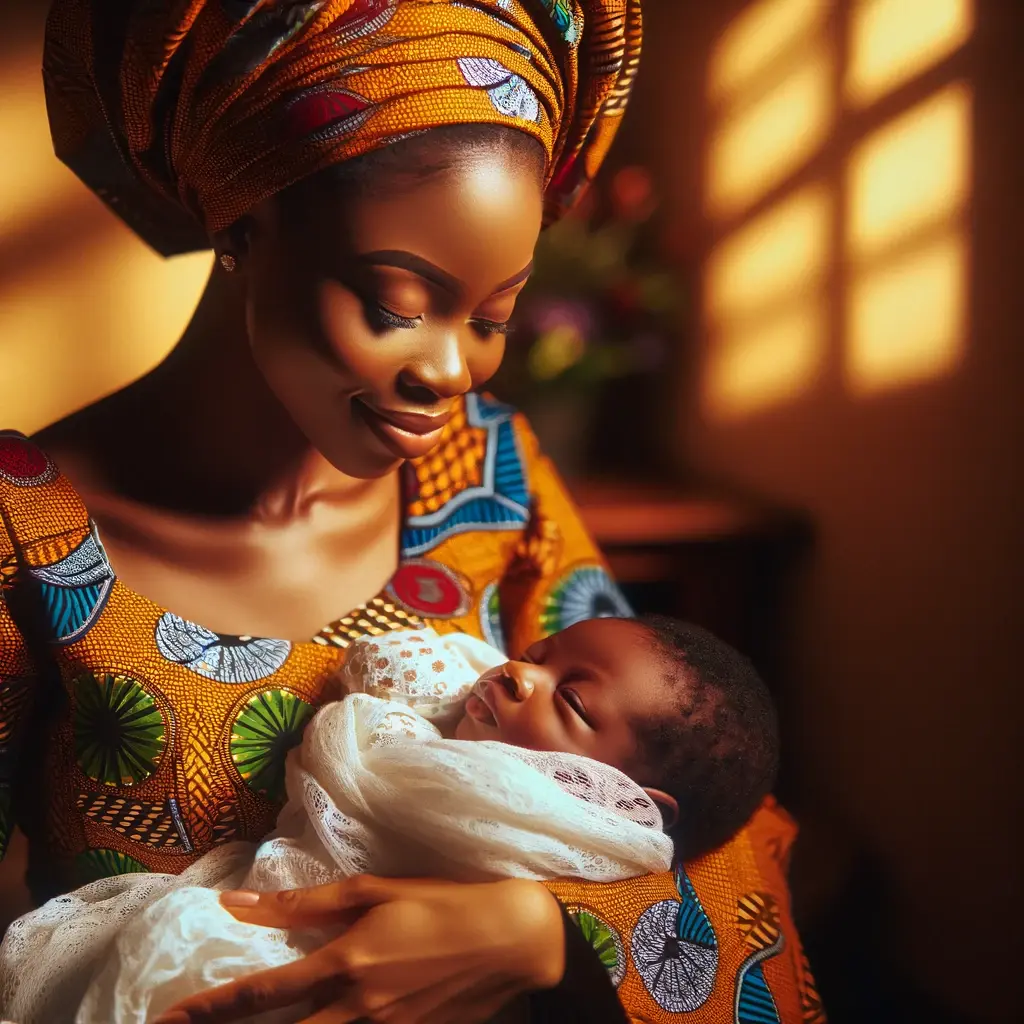Introduction
Names hold a significant place in Nigerian culture, reflecting heritage, beliefs, and cultural values.
They are not merely labels but encompass a deeper meaning that resonates throughout one’s life.
In this blog post, we will dive into the importance of names in Nigerian culture and explore the topic of finding the perfect Nigerian name.
A. Importance of names in Nigerian culture
In Nigerian culture, names are more than just identifiers. They carry ancestral connections, societal expectations, and even spiritual significance.
A name is believed to shape a person’s destiny and influence their character, hence parents devote great thought and importance to selecting a name for their child.
B. Brief overview of the blog post’s topic: Finding the Perfect Nigerian Name
In this blog post, we will delve into the process of finding the perfect Nigerian name.
We will explore the various factors to consider, such as cultural significance, unique meanings, and personal preferences.
Additionally, we will provide tips and resources to assist individuals in discovering a name that resonates with their Nigerian heritage and personal identity.
Finding a Nigerian name that reflects cultural heritage and personal identity is a journey worth embarking on.
So join us as we navigate the rich tapestry of Nigerian names, their significance, and how to find the perfect match for yourself or your child.
Historical Background
A. Historical Significance of Names in Nigerian Society
- Names in Nigeria are more than labels; they encapsulate history, values, and familial pride.
- Traditionally, names conveyed traits, circumstances, and even aspirations of the bearer.
- Historical events often shape naming conventions, with names acting as living records.
B. Traditional Naming Ceremonies and Customs
- Naming ceremonies are joyous occasions, steeped in tradition and communal celebration.
- Elders play a pivotal role, offering wisdom and suggesting names rooted in cultural significance.
- Ancestral homage is paid through names, fostering a profound connection across generations.
- Ceremonies vary among ethnic groups, showcasing Nigeria’s rich cultural tapestry.
C. Influence of Colonization on Nigerian Names
- Colonial history echoes in Nigerian names, a subtle testament to a complex past.
- European names sometimes intertwine with traditional ones, creating unique hybrids.
- Colonial influence triggered shifts, altering naming norms and introducing new linguistic elements.
- Today, Nigerian names reflect resilience, blending heritage with the imprints of colonial legacies.
In the intricate dance of tradition and change, Nigerian names weave a vibrant narrative, echoing the resilience and adaptability of a nation that cherishes its past while embracing the future.
Read: Modern Twist on Classic Nigerian Names
Meaning and Symbolism of Nigerian Names
Nigerian names are not merely labels given for identification. Rather, they hold significant meanings and symbolism that reflect cultural beliefs and values.
These names often have deep meanings that encompass various aspects of life.
A. How Nigerian names often have deep meanings
Nigerian names are carefully chosen by parents to convey a particular message or wish for their child.
Parenting Made Just for You
Get personalized Parenting Solutions tailored to your child’s needs. Transform your parenting journey with expert guidance in 1-3 days.
Get StartedEach name has a story behind it, representing aspirations, virtues, or elements of Nigerian culture.
B. Significance of names related to birth circumstances, family roles, and beliefs
Nigerian names are closely tied to the circumstances of a child’s birth.
They may reflect the belief that a child is a gift from God or symbolize the hope for a bright future.
Names can also indicate the child’s role in the family or express cultural beliefs.
C. Common symbolism found in Nigerian names
- Blessings and Prosperity: Many Nigerian names reflect the desire for a prosperous and blessed life. Examples include “Chioma,” meaning “good God,” and “Ade,” meaning “crown” or “royalty.”
- Resilience and Strength: Nigerian names often convey qualities of resilience and strength. For instance, “Obi” means “heart” and symbolizes courage and bravery.
- Cultural Heritage: Nigerian names are deeply rooted in cultural heritage. Names like “Chukwuemeka,” meaning “God has done great,” and “Chidimma,” meaning “God is good,” reflect the importance of spirituality and faith.
- Family Connection: Nigerian names frequently emphasize the child’s connection to their family. For instance, “Ijeoma” means “safe journey,” wishing the child a safe and successful life’s journey.
- Gender Distinction: Nigerian names also have distinctive meanings for boys and girls. For example, “Chike” means “God’s power” for boys, while “Chika” means “God is the greatest” for girls.
- Historical and Cultural Figures: Names in Nigeria often pay homage to historical or cultural figures. “Azeezat,” for instance, means “highly esteemed” and shows respect for a prominent figure or ancestor.
- Nature and Elements: Nigerian names frequently draw inspiration from nature and natural elements. “Yemi” means “my joy” and represents the beauty and happiness found in nature.
- Personal Qualities: Some Nigerian names symbolize particular personal qualities or characteristics. “Oluwafemi,” for example, means “God loves me” and signifies the belief in one’s worth and divine love.
In essence, Nigerian names hold a profound significance deeply rooted in cultural beliefs and values.
These names represent the aspirations, virtues, and cultural heritage of the Nigerian people.
From blessings and prosperity to resilience and strength, each name carries a unique message and symbolism.
Understanding the meaning behind Nigerian names provides insight into the rich cultural tapestry of Nigeria and the importance people place on their names.
Read: Historic Nigerian Names Making a Comeback
Factors to Consider when Choosing a Nigerian Name
When choosing a Nigerian name, there are several factors to consider before making a decision.
These factors can be broadly categorized into cultural considerations and personal preferences.
A. Cultural Considerations
Understanding different ethnic groups and their naming traditions is crucial when selecting a Nigerian name.
Nigeria is a diverse country with over 250 ethnic groups, each with its unique naming customs and traditions.
It is important to respect and honor these traditions when choosing a name for your child.
Unveil the Perfect Name that Tells Your Family's Story
Let us help you find a name that embodies your family's values, traditions, and dreams. Our personalized consultation weaves cultural insights to create a name that's uniquely yours.
Get StartedRegional variations in naming customs also play a significant role in Nigerian names.
Names can vary from region to region, and it is essential to understand the naming conventions in the specific region your child belongs to.
This knowledge will help you choose a name that is culturally appropriate and meaningful.
Moreover, Nigerian names often carry cultural significance and traditional values.
They can reflect family lineage, historical events, or even qualities and characteristics that parents wish to instill in their children.
When choosing a name, it is important to consider these cultural elements and select a name that holds meaning and symbolism.
B. Personal Preferences
While cultural considerations are essential, personal preferences also play a significant role in choosing a Nigerian name.
Individual taste and style differ from person to person, and it is crucial to choose a name that resonates with you and your child.
Balancing unique and traditional names is another aspect to consider.
Some parents may prefer traditional names that have been passed down through generations, while others may want to choose a unique and distinctive name for their child.
Finding a balance between the two can create a name that is both meaningful and individual.
Furthermore, gender-specific names and variations are important considerations.
In Nigerian culture, names often reflect the gender of the child, and certain names are specifically used for boys or girls.
However, there are also unisex names or names that have variations for both genders.
It is important to choose a name that accurately represents your child’s gender identity while aligning with cultural traditions.
In fact, choosing a Nigerian name requires careful consideration of both cultural factors and personal preferences.
Understanding different ethnic groups and their naming traditions, regional variations in naming customs, and respecting cultural significance and traditional values are crucial.
Additionally, personal preferences such as individual taste and style, balancing unique and traditional names, and selecting gender-specific names and variations are important aspects to consider.
By taking these factors into account, parents can find the perfect name that reflects their cultural heritage and resonates with their personal values and preferences.
Read: Baby Naming Traditions in Nigerian Tribes

Researching Nigerian Names
When searching for Nigerian names, there are numerous online resources available.
These websites provide a variety of options for finding the perfect name for your child.
A. Online resources for Nigerian names and their meanings
- NigerianNames.com: This website offers an extensive database of Nigerian names along with their meanings.
It also provides pronunciation guides and origin information. - Babynames.com: While not specifically focused on Nigerian names, this website has a comprehensive collection of names from various cultures, including Nigerian ones.
It provides meanings and popularity rankings for each name. - Behindthename.com: This website allows you to search for names based on different criteria, such as origin, meaning, and popularity.
It includes Nigerian names and provides detailed information about their origins and meanings.
B. Popular Nigerian names and their origins
- Amina: This name is of Arabic origin and means “trustworthy” or “honest.” It is commonly used in Nigeria and other African countries.
- Chukwuemeka: This Igbo name means “God has done well” or “God has done great.” It is often given to express gratitude for a successful event or situation.
- Fatima: of Arabic origin, this name means “captivating” or “one who abstains.” It is popular among Nigerian Muslims and is often associated with devotion and purity.
C. Meaningful combinations and variations of names
- Chioma-Grace: This combination of the Igbo name “Chioma,” meaning “good God,” and the English name “Grace” creates a powerful and meaningful name.
- Adaeze: Derived from the Igbo language, this name means “king’s daughter.” Variations include Adaora and Adaobi.
- Olumide: A Yoruba name meaning “God has come” or “God came,” it can be combined with other names such as Olumide-Tolu to add depth and significance.
In fact, researching Nigerian names can be an exciting and fulfilling process.
There are several online resources available that can help you find the perfect name for your child.
Whether you are looking for popular names or meaningful combinations, Nigerian naming traditions offer a wealth of options to choose from.
Remember to consider the origin and meaning of each name to ensure it holds special significance for your family.
Read: The Art of Naming: Nigerian Names Guide
Practical Tips for Selecting a Nigerian Name
A. Consulting with Family Elders and Relatives
- Begin the name quest by gathering insights from wise family elders.
- Seek guidance on cultural traditions and the significance of names.
- Engage in conversations about family history to unearth hidden gems.
- Respectfully inquire about the meanings and stories behind ancestral names.
- Embrace the richness of tradition while exploring modern naming options.
B. Seeking Input and Suggestions from Trusted Loved Ones
- Extend the name-search journey to trusted friends and family members.
- Consider diverse perspectives to find a name that resonates universally.
- Encourage open discussions to foster a collaborative decision-making process.
- Value the emotional connections others may have with specific names.
- Balance individual preferences with communal sentiments for a harmonious choice.
C. Considering the Sound and Pronunciation of the Name
- Pay attention to the musicality and rhythm of potential names.
- Pronounce shortlisted names aloud to evaluate ease of articulation.
- Ensure the name flows well with the family surname for coherence.
- Factor in regional accents and dialects to enhance linguistic harmony.
- Opt for names with positive phonetic associations for lasting appeal.
D. Importance of Avoiding Negative or Offensive Connotations
- Research thoroughly to uncover any unintended negative meanings.
- Verify potential names to sidestep associations with controversial figures or events.
- Stay mindful of cultural contexts to avoid unintentional offense.
- Scrutinize names for potential teasing or misinterpretation in different languages.
- Prioritize names that radiate positivity and contribute to a sense of pride.
In the quest for the perfect Nigerian name, consult the wisdom of elders, engage trusted loved ones, prioritize sound and pronunciation, and steer clear of negative connotations.
This holistic approach ensures a meaningful and culturally resonant choice for the newest member of the family.
Conclusion
Nigerian names hold great significance and meaning for individuals and their families. They serve as a powerful link to the country’s rich cultural heritage.
It is essential to understand the importance of selecting a meaningful Nigerian name for your child.
A. Recap of the importance of Nigerian names
Throughout this blog post, we discussed various aspects of Nigerian names.
We explored their cultural significance, their ability to connect individuals to their roots, and how they reflect family values and beliefs.
Nigerian names are not just labels; they are expressions of identity and pride.
B. Encouragement to embrace Nigerian heritage through name selection
Choosing a Nigerian name for your child is more than just picking a random word.
It is an opportunity to embrace and celebrate your Nigerian heritage.
By selecting a name deeply rooted in Nigerian culture, you are keeping the traditions alive and passing them on to the next generation.
C. Final thoughts on finding the perfect Nigerian name for your child
Finding the perfect Nigerian name requires careful thought and consideration. It should reflect your family’s values, beliefs, and aspirations.
Seek guidance from elders and consult resources that provide insight into Nigerian naming traditions.
Remember, a Nigerian name is a precious gift that will shape your child’s identity for a lifetime.
Embrace this opportunity and honor your Nigerian heritage through the name you choose.




